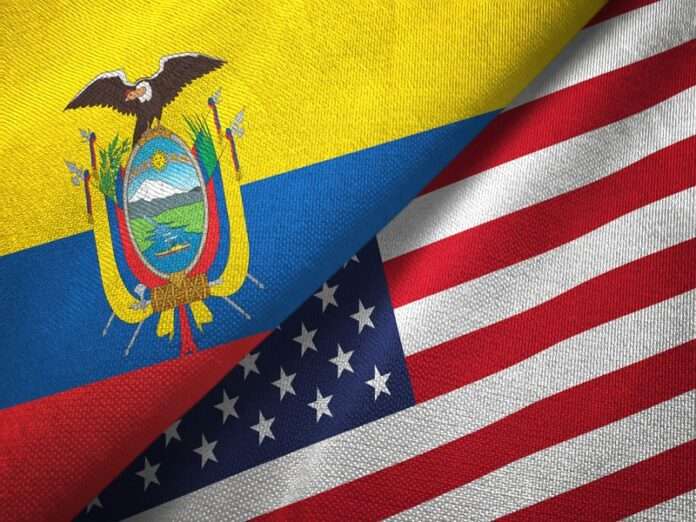New Ecuadorean President Daniel Noboa declared on Wednesday that “we will swap Ukrainian and Russian scrap metal (with the US) for advanced equipment costing $200 million” in a move that will certainly be frowned upon by Moscow. Kremlin spokesman Dmitry Peskov said a year ago in January 2023 that his country was keeping a close eye on its Latin American partners after the US proposed swapping their Russian arms for modern American ones in order to send the former to Ukraine.
Director of the Russian Foreign Ministry’s Latin American Department Alexander Shchetinin then told TASS on the sidelines of last October’s Russia-Latin America conference that “Latin America is not involved in this, and this situation at the moment is absolutely clear and unambiguous.” Noboa wasn’t elected until later that month, but it was newly elected Argentine President Javier Milei that folks were fretting about when it came to the possibility of a Latin American state breaking ranks on this scheme.
“Russian-Argentine Ties Will Stay Stable So Long As Milei Doesn’t Send Arms To Ukraine”, and Russian Ambassador to Argentina Dmitry Feoktisov said that discussions with his new counterpart convinced him that Buenos Aires has no such intentions to ruin bilateral relations that way or any other. Milei has a diehard pro-American worldview but even that hasn’t led to him taking the US up on its swap proposal, at least not yet, which raises questions of why Noboa was the first to do so despite few suspecting him.
He’s also a newly elected pro-American leader but isn’t considered anywhere near as zealous as Milei. The timing of his announcement adds context to this decision and reveals that it was arguably taken under duress. Narco-terrorists staged a very violent but ultimately failed nationwide insurrection this week that led to mutual declarations of war between them and the state. The situation is extremely tense and the armed forces need all the support they can muster at this existential moment.
Noboa revealed that the American Ambassador pledged to provide an assistance package to his country, while National Security Advisor Jake Sullivan promised closer security cooperation but Pentagon spokesman John Kirby ruled out dispatching troops to help quell the unrest. The last-mentioned official also said that it’s too early to tell whether there might be a large-scale refugee/migrant outflow from Ecuador towards the US’ southern border, but it also can’t be ruled out either.
Putting everything together, it becomes apparent what probably transpired, namely that the US likely made its assistance package conditional on Ecuador agreeing to last year’s proposed swap of old Russian arms for modern American ones. Had it not been for this week’s ultimately failed insurrection, the consequences of which continue to reverberate throughout the country and could even spill across its borders, it’s highly unlikely that Noboa would have taken Washington up on that offer.
Now, however, he needs to ensure that he has America’s full support for his armed forces during this unprecedented crisis in his country’s history. As was earlier written, Moscow will certainly frown upon this move and possibly condemn it as unfriendly, but hopefully its policymakers understand the predicament that Noboa found himself in and which arguably compelled him to do this under duress. The tangible impact on the Ukrainian Conflict will be practically nil, but the optics are still troubling.
As NATO’s proxy war on Russia through Ukraine finally winds down and that battleground state braces for another possibly forthcoming offensive, the transfer of old Russian and Ukrainian arms isn’t going to make any difference except perhaps to help some units cling to the Line of Contact. It’ll in no way enable them to launch another counteroffensive after last summer’s failed one nor pose any serious threat to Russia’s overall security interests. The only importance rests in the US’ modus operandi.
To explain, if it indeed made its anti-terrorist support for that country conditional on its leadership agreeing to last year’s swap, then this means that more such violence elsewhere – whether connected to Ecuador’s or independent thereof – can lead to more Latin American states breaking ranks on this issue. As painfully proven by this week’s developments, some regional countries are much more fragile than previously thought, and non-state actors like narco-terrorists can throw them into chaos in a single day.
As Congress debates how to resolve the border crisis, one solution might be to make this proposal part of a package deal with the US’ Latin American partners whereby the security support that they’re requesting to help address migrant flows would be dependent on them agreeing to that swap. Those that don’t won’t get modern American arms, with all that entails for them possibly following Ecuador’s path, but it’s unclear whether policymakers are clever (or rather devious) enough to consider this.








